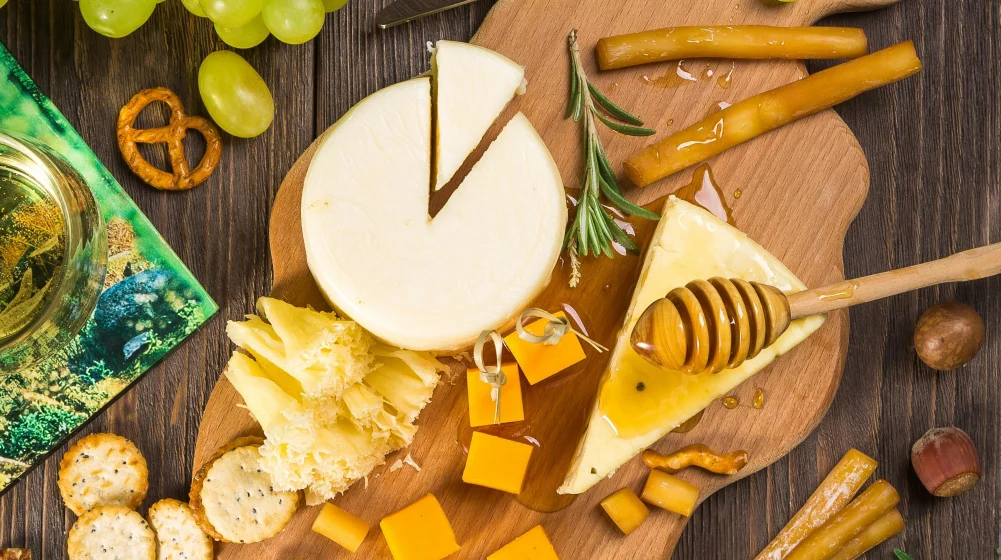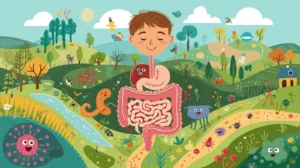1. The first few days- Colostrum
The first few days of breastfeeding are crucial for both the mum and the newborn, as this is the period when colostrum is produced. Colostrum is the first milk that the mother’s breasts produce after childbirth, and it is highly beneficial for the baby’s health and development. Here is what you need to know about colostrum and the importance of these initial days of breastfeeding:
What is Colostrum?
Colostrum is a thick, yellowish fluid that is rich in nutrients, antibodies, and growth factors. It is low in fat
and high in carbohydrates, protein, and antibodies. Colostrum acts as a natural vaccine, providing the baby with essential antibodies and helping to protect against infections and diseases. It also helps in the
development of the baby’s immune system, digestive system, and overall growth.
Benefits of Colostrum:–
- Immune Protection: Colostrum is packed with antibodies and white blood cells that help the baby
fight off infections, viruses, and bacteria. - Digestive Health: It acts as a natural laxative, helping the baby pass the meconium (the baby’s first
stool), which helps in clearing out the digestive system. - Nutritional Support: Colostrum provides concentrated nutrition, essential for the baby’s early growth and development.
- Bonding: The act of breastfeeding and skin-to-skin contact during these initial days promotes
bonding between the mother and the baby.
2. What might happen – Drinking alcohol when on breastfeeding?
Breastfeeding mums are often concerned about the impact of alcohol consumption on their babies. When a breastfeeding mother drinks alcohol, it can pass into her breast milk and therefore affect her baby. Here you should consider some important points whilst breastfeeding:
Timing can be crucial: The timing of alcohol consumption in relation to breastfeeding is important. If you
plan to drink alcohol, it is advisable to do so right after breastfeeding or pumping milk. This allows time for the body to metabolise the alcohol before the next feeding.
Moderation is key: If you choose to drink alcohol while breastfeeding, it is important to do so in
moderation. The American Academy of Paediatrics (AAP) suggests that moderate alcohol consumption is generally compatible with breastfeeding. Moderate consumption is usually defined as one standard drink per day. One standard drink is typically considered to be 12 ounces of beer, 5 ounces of wine, or 1.5
ounces of distilled spirits.
Pump and dump not always effective: The practice of pumping breast milk to “get rid of” the alcohol and then dumping that milk is not effective. Alcohol leaves breast milk as it leaves the bloodstream, so pumping and dumping will not speed up this process.
Watch for signs of intoxication in your baby: If you have had more than a moderate amount of alcohol
or if you are unsure about the safety, it is a good idea to wait until you are sober before breastfeeding
again. If your baby seems unusually sleepy or has difficulty breastfeeding, it might be best to have
someone else feed the baby with previously pumped breast milk or formula until you are sober.
Plan ahead: If you know you will be in a situation where you might want to have a drink, you can pump and store milk beforehand. This allows you to have a stockpile of breast milk for your baby, so you don’t have to worry about breastfeeding immediately after consuming alcohol.
3. Alcohol consumption and how it might hinder Colostrum boost?
I often come around with this question from mums asking me, ‘’ I had a glass of wine, can I still breastfeed?’’
Hey ladies, now let us understand this, alcohol consumption, especially in excessive amounts, can have
several negative effects on colostrum production and hinder its benefits while you’re breastfeeding-
Inhibition of milk ejection reflex: Alcohol can interfere with the let-down reflex, which is the process that allows milk to flow from the mammary glands to the nipple. This inhibition can make it difficult for the baby to latch and effectively breastfeed, leading to inadequate colostrum intake.
Reduced milk production: Alcohol can temporarily reduce milk production. If a mother consumes alcohol in excess, it can interfere with the hormones that control milk production, potentially leading to a decrease in the overall amount of colostrum produced.
Altered composition: Alcohol can change the composition of breast milk, including colostrum. Studies
have shown that alcohol can be detected in breast milk within 30 minutes to 2 hours after consumption, and its concentration in breast milk is like the mother’s blood alcohol level. This means that the alcohol content in colostrum can be significant if the mother has recently consumed alcohol.
Negative impact on infant development: Excessive alcohol consumption during breastfeeding can
negatively affect the baby’s motor skills, coordination, and development. It can also impair the baby’s ability to suck and swallow effectively.
Risk of aspiration: If a breastfeeding mother is heavily intoxicated, she may have impaired judgment and
coordination, posing a risk of dropping or accidentally hurting the baby. Additionally, a highly intoxicated
mother might be at risk of falling asleep while breastfeeding, which increases the risk of accidental
suffocation or aspiration for the baby.
Given these potential risks, it is advisable for breastfeeding mums to avoid alcohol, especially during the early days of breastfeeding when colostrum is crucial for the baby’s health and development. If a mother chooses to drink alcohol, it is essential to do so in moderation and plan breastfeeding around the timing of alcohol consumption to minimise its impact on your baby.
4. Breastfeeding mums and the necessary dietary intake
A healthy and balanced diet is essential for breastfeeding mothers, as it provides the necessary nutrients
for both you and your baby. Here are some important tips to consider when it comes to breastfeeding and diet:
Calorific intake: Breastfeeding burns extra calories, so it’s important to consume an adequate number of
calories to maintain your energy levels and support milk production. Most breastfeeding mothers need
about 300-500 extra calories per day compared to their pre-pregnancy intake. However, individual calorie needs can vary, so listen to your body’s hunger and fullness cues.
Nutrient-rich foods: Focus on consuming nutrient-dense foods such as fruits, vegetables, whole grains,
lean proteins, and healthy fats. These foods provide essential vitamins and minerals that are important for both you and your baby’s health.
Protein: Include sources of high-quality protein in your diet, such as lean meats, poultry, fish, eggs, dairy
products, legumes, nuts, and seeds. Protein is important for tissue repair and growth, and it helps in the
production of breast milk.
Calcium: Dairy products, fortified plant-based milk, green leafy vegetables, and calcium-fortified foods are good sources of calcium, which is essential for bone health, both for you and your baby.
Iron: Iron-rich foods like lean meats, poultry, fish, legumes, fortified cereals, and dark leafy greens are
important, especially if you experienced significant blood loss during childbirth. Iron is crucial for preventing anaemia and ensuring your baby gets enough oxygen through breast milk.
Omega-3 fatty acids: Include sources of omega-3 fatty acids in your diet, such as fatty fish (like salmon
and sardines), flaxseeds, chia seeds, and walnuts. Omega-3 fatty acids are important for your baby’s brain and eye development.
Hydration: Drink plenty of water throughout the day to stay well-hydrated. Breastfeeding can make you feel thirsty, so listen to your body and drink water, milk, or other hydrating beverages regularly.
Limit caffeine and alcohol: If you consume caffeine or alcohol, do so in moderation. Both substances can pass into breast milk and affect your baby. It is advisable to limit caffeine intake and avoid alcohol at least 2-3 hours before breastfeeding to minimise its presence in breast milk.
Avoiding allergenic foods: If your baby shows signs of food allergies, such as eczema or digestive
issues, consider eliminating common allergens from your diet under the guidance of a healthcare provider. Common allergens include dairy, soy, nuts, eggs, and wheat.
Consult a Dietitian: If you have specific dietary concerns or restrictions, or if you are unsure about your
nutritional needs while breastfeeding, consider consulting your Dietitian. They can provide personalized
guidance based on your individual needs and preferences.
5. Trend of Vegan diet and its effect on breastfeeding mums?
Vegan diets, which exclude all animal products, have become increasingly popular in recent years due to
various reasons, including ethical, environmental, and health concerns. When it comes to breastfeeding
mothers, a well-planned vegan diet can provide all the necessary nutrients for both the mother and the
baby. However, there are some specific considerations to keep in mind to ensure that both the mother and the baby receive adequate nutrition:
Protein: Plant-based sources of protein include legumes (beans, lentils, chickpeas), tofu, tempeh, nuts,
seeds, and whole grains. Breastfeeding mothers need slightly more protein than non-breastfeeding women, so it’s essential to include a variety of protein-rich plant foods in the diet.
Vitamin B12: Vitamin B12 is primarily found in animal products, so vegans need to rely on fortified foods or supplements to meet their B12 requirements. A deficiency in B12 can have serious consequences for both the mother and the baby.
Iron: Plant-based iron sources include lentils, tofu, fortified cereals, spinach, and pumpkin seeds. However, the iron found in plant foods (non-haem iron) is not as readily absorbed by the body as the iron from animal sources. Consuming vitamin C-rich foods, such as citrus fruits and bell peppers, with iron-rich plant foods can enhance iron absorption.
Calcium: Calcium is important for bone health, and vegans can obtain calcium from fortified plant milks,
tofu, leafy green vegetables, and almonds. Ensure you are consuming an adequate amount of calcium
through your diet or consider fortified foods and supplements if necessary.
Omega-3 Fatty Acids: Include plant-based sources of omega-3 fatty acids, such as flaxseeds, chia seeds, hemp seeds, and walnuts, to support brain and eye development in the baby.
Iodine: Iodine is essential for thyroid function and brain development. Sea vegetables (like seaweed) and
iodine-fortified salt are good vegan sources of iodine.
DHA Supplements: DHA (docosahexaenoic acid) is an important omega-3 fatty acid for brain
development. While it is primarily found in fish, vegan DHA supplements derived from algae are available
and can be considered by breastfeeding mothers.
Hydration: Ensure you are well-hydrated, as breastfeeding can increase your fluid needs.
It is crucial for vegan breastfeeding mums to plan their diets carefully and consult your Dietitian to ensure they are meeting all their nutritional needs. A well-balanced vegan diet can provide all the essential nutrients for both the mother and her baby, but careful planning and supplementation, if necessary, are key towards a healthy breastfeeding experience.
6. Alternatives to alcohol whilst breastfeeding
If you are looking for alternatives to alcohol while breastfeeding, there are plenty of options that can help
you relax and unwind without the risks associated with alcohol consumption. Here are some alternatives to consider:
Non-Alcoholic Mocktails: Create delicious mocktails using sparkling water, fruit juices, and fresh
fruits. There are numerous mocktail recipes available that mimic the flavours of traditional cocktails
without the alcohol content.
Herbal Teas: Herbal teas, such as chamomile, ginger, or peppermint, can be soothing and
calming. Just ensure that the herbal teas you choose are breastfeeding-safe, as some herbs can
interfere with milk supply or have other effects on the baby.
Sparkling Water with Fruit: Add slices of citrus fruits, berries, or cucumber to sparkling water for a
refreshing and hydrating beverage. You can also add a splash of fruit juice for extra flavor.
Infused Water: Infusing water with fruits, vegetables, or herbs can create a tasty and refreshing
drink. Try combinations like cucumber and mint, lemon and basil, or berries and rosemary.
Decaffeinated Beverages: Decaffeinated versions of coffee and tea are widely available and can
provide a warm and comforting drink without the stimulating effects of caffeine.
Coconut Water: Coconut water is a natural hydrating drink that provides electrolytes and can be a
good alternative to alcoholic beverages.
Kombucha: Kombucha is a fermented tea that comes in various flavours. It is naturally
effervescent and can offer a unique taste experience without alcohol.
Fruit Smoothies: Blend your favourite fruits with yogurt or milk (dairy or plant-based) to create a
nutritious and satisfying smoothie.
Hot Milk with Honey: Warm milk with a touch of honey can be a calming bedtime drink that helps
promote relaxation.
Mindfulness and Relaxation Techniques: Engaging in relaxation techniques like deep breathing,
meditation, or yoga can help reduce stress and promote a sense of calm and well-being.
Remember, it is essential to stay well-hydrated, especially while breastfeeding. Water is one of the best and healthiest options to keep you hydrated throughout the day. Always consult with your Dietician if you have any concerns about the beverages, you choose while breastfeeding.
7. What is a standard alcohol drink?
A standard alcohol drink is a measure of alcohol that is used to help people understand and moderate their alcohol consumption. The definition of a standard drink can vary by country, but in the United States, a standard alcoholic drink typically contains approximately 14 grams of pure alcohol, which is roughly equivalent to:
12 ounces of beer (with about 5% alcohol content)
5 ounces of wine (with about 12% alcohol content)
1.5 ounces of distilled spirits or liquor (such as vodka, rum, gin, or whiskey), which is often mixed
into cocktails (with about 40% alcohol content)
It is important to note that the alcohol content of beverages can vary widely, so it is essential to check the label on the packaging to determine the exact alcohol by volume (ABV) percentage. Understanding what constitutes a standard drink can help individuals make informed decisions about their alcohol consumption and maintain a moderate and safe drinking pattern.
‘’Breast milk is the essence of motherhood, Handle it with care.
Alcohol can wait; your baby’s health cannot.’’




